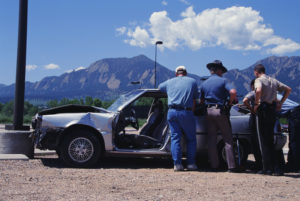No matter how careful and law-abiding you may be when operating a vehicle, you are likely to get pulled over for a traffic stop at some point if you drive long enough. If that traffic stop appears to be turning into something more than a simple warning or ticket, what are your rights? A Murfreesboro criminal defense attorney at Bennett, Michael & Hornsby explains some of the basic rights and responsibilities that apply to a driver during a traffic stop.
The Police Must Have a Reason to Stop You
A law enforcement officer is not legally allowed to make random traffic stops. Instead, the law requires an
Your Rights Once Stopped
Whether or not a law enforcement office had a legal right to make a traffic stop in the first place is something your criminal defense attorney can analyze if necessary. In the moment, you need to know what your rights and responsibilities are during the traffic stop.
- Answering Questions. You have a right to remain silent and that right applies to passengers as well. You do have a responsibility to identify yourself to a law enforcement officer; however, you do not have to answer questions. This includes questions about your legal status in the United States. If you wish to invoke your right to remain silent, tell the officer that respectfully and clearly. Invoking your right to remain silent is likely to make the encounter more tense and may escalate the situation; however, it is your constitutional right to decline to answer questions.
- Length of Stop. Once stopped, an officer can only detain you for as long as it reasonably takes to conduct the investigation based on the original reason for the stop. For example, if you were stopped based on a malfunctioning light, the officer could detain you for the length of time it takes to run your license and registration and write you a citation for the light. To detain you any longer, the officer needs probable cause to believe a crime is being/was committed. Again, this is something your lawyer can investigate; however, if you believe the stop was unnecessarily long, make note of the time you were stopped and tell your attorney.
- Search of Vehicle. For one reason or another, the officer may decide that a search of your vehicle is warranted. Once, again, you do not have to consent to a search. Although vehicle searches fall into an exception to the warrant requirement found in the 4th Amendment, an officer must still have probable cause to detain you beyond the initial traffic stop and to search your vehicle. Probable cause is a much higher standard than reasonable suspicion. As with your right to remain silent, let the officer know that you do not consent to the search; however, do not resist if the search is conducted anyway. If you did not consent to the search your attorney may be able to get any evidence seized during the search excluded if the officer did not have the requisite probable cause to conduct the search.
Contact a Murfreesboro Criminal Defense Attorney
If you have been arrested or charged with a criminal offense that started as a simple traffic stop, consult with an experienced Murfreesboro criminal attorney at Bennett, Michael & Hornsby to discuss your legal options. Contact the team today by calling 615-898-1560 to schedule your free appointment.
- The Art of Successful Co-Parenting During Divorce - April 19, 2024
- Elder Financial Exploitation: How to Protect Seniors - April 12, 2024
- How to Obtain Guardianship of a Minor in Tennessee - April 2, 2024




